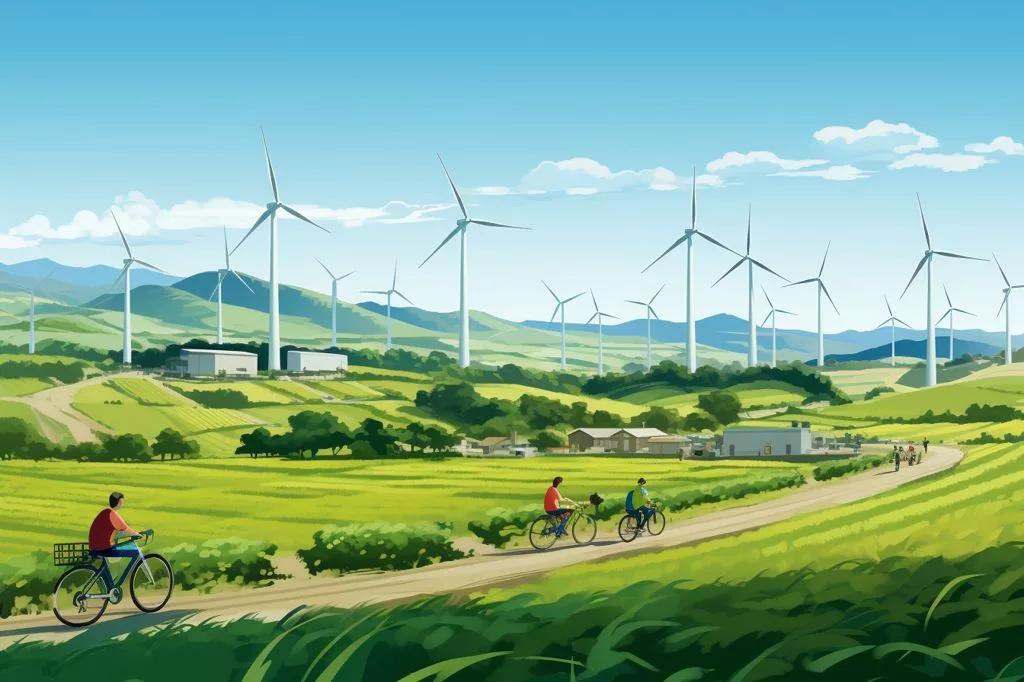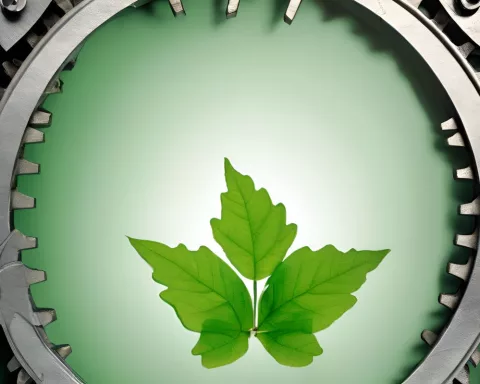Wine brands are leading the way in sustainability by implementing eco-friendly practices such as organic and biodynamic farming, water and energy efficiency, waste reduction, and fair labor practices. In addition, ethical wine production is gaining traction with Fairtrade certification and advocacy for wildlife conservation. These brands, including Mothercity Liquors, Lubanzi Wines, and Waterkloof Wines, are setting the standard for a more sustainable and socially responsible future in the industry.
What are some sustainable initiatives in the wine industry?
Wine brands are implementing eco-friendly packaging, organic and biodynamic practices, water and energy efficiency, carbon neutrality, community involvement, waste reduction, biodiversity preservation, and fair labor practices. Ethical wine production is gaining traction, with Fairtrade certification and advocacy for wildlife conservation. These initiatives demonstrate the industry’s commitment to making a positive influence on the world and offer a glimpse into the future of sustainable and responsible wine production.
Pioneering a Sustainable Wine Industry
In today’s world, characterized by a growing environmental awareness and the pursuit of sustainability, wine brands are taking on the challenge. These industry trailblazers are transforming how we enjoy our beloved beverages through responsible manufacturing and groundbreaking sustainability initiatives. Tiana Pena, marketing and social media manager at Mothercity Liquor, asserts that “wine brands around the world are making impressive progress in reducing their carbon footprint, conserving natural resources, and supporting communities, with a firm commitment to safeguarding the environment and fostering sustainability.”
As consumer preferences shift, the call for products that align with their principles grows more powerful. This change drives wine brands to prioritize sustainability, demonstrating the industry’s commitment to making a positive influence on the world. Noteworthy sustainability efforts that have developed in vineyards include eco-friendly packaging, organic and biodynamic practices, water and energy efficiency, carbon neutrality, community involvement, waste reduction, biodiversity preservation, and fair labor practices.
These efforts signify the start of an exhilarating journey for wine brands as they work to establish a more eco-friendly and socially aware industry. Among the leaders is Mothercity Liquors, who has teamed up with Lubanzi Wines. This forward-thinking brand contributes 1% of their yearly sales to the Pebbles Project, a non-profit organization assisting children in South African wine-farming communities. Another outstanding brand is Waterkloof Wines, which allocates almost half of their farm to conservation and heritage preservation, letting nature thrive alongside their vineyards.
Embracing Ethical Wine Production Practices
Ethical wine production is also gaining traction, with Bosman Family Wines at the forefront. Their Fairtrade certification ensures fair treatment and wages for workers, establishing a praiseworthy standard for the industry. In addition, Painted Wolf Wines exhibits a commitment to wildlife conservation by actively raising funds and advocating for the protection of the endangered African Wild Dog.
Pena lauds the collaboration between Mothercity Liquor and these outstanding wine producers, recognizing their unwavering commitment to sustainability and the common good. As consumers prioritize eco-friendly and socially responsible products, these wine brands serve as a shining example for the industry to emulate.
Over time, the wine industry has drawn upon various artistic and cultural movements to craft exceptional experiences for consumers. Similarly, these environmentally conscious brands are taking inspiration from the global shift towards sustainability, offering a fresh outlook on the time-honored traditions of winemaking. This inventive approach to wine production not only caters to the eco-conscious consumer but also lays the groundwork for a more sustainable future in the industry.
Looking Forward to a Sustainable Future
The endeavors of these innovative wine brands represent just the beginning of the journey toward sustainability. As the world continues to progress, the wine industry must also evolve. By adopting eco-friendly and socially responsible practices, these brands are setting an example for their counterparts to follow, paving the way for a more sustainable and equitable future for all.
In summary, the wine industry is experiencing a transformative phase, with brands embracing cutting-edge sustainability measures and socially responsible practices to meet the changing demands of consumers. Pioneers such as Mothercity Liquors, Lubanzi Wines, and Waterkloof Wines are at the forefront of reducing their carbon footprint and supporting communities, with many more expected to follow their lead. As the world becomes more environmentally aware, these groundbreaking wine brands offer a hopeful glimpse into the future of sustainable and responsible wine production.
1. What sustainable initiatives are wine brands implementing?
Wine brands are implementing eco-friendly packaging, organic and biodynamic farming, water and energy efficiency, carbon neutrality, community involvement, waste reduction, biodiversity preservation, fair labor practices, and ethical wine production such as Fairtrade certification and advocacy for wildlife conservation.
2. Why are wine brands prioritizing sustainability?
As consumer preferences shift towards eco-friendly and socially responsible products, wine brands are prioritizing sustainability to make a positive influence on the world and meet the changing demands of consumers.
3. Which wine brands are leading the way in sustainability?
Mothercity Liquors, Lubanzi Wines, and Waterkloof Wines are some of the wine brands leading the way in sustainability by implementing eco-friendly practices and socially responsible initiatives.
4. What is Mothercity Liquor’s sustainability initiative?
Mothercity Liquor has teamed up with Lubanzi Wines and contributes 1% of their yearly sales to the Pebbles Project, a non-profit organization assisting children in South African wine-farming communities.
5. What is Waterkloof Wines’ sustainability initiative?
Waterkloof Wines allocates almost half of their farm to conservation and heritage preservation, letting nature thrive alongside their vineyards.
6. What is ethical wine production?
Ethical wine production includes Fairtrade certification and advocacy for wildlife conservation, ensuring fair treatment and wages for workers and protecting endangered species and their habitats.
7. Which wine brand is at the forefront of ethical wine production?
Bosman Family Wines is at the forefront of ethical wine production with their Fairtrade certification ensuring fair treatment and wages for workers.
8. What is the significance of sustainability initiatives in the wine industry?
Sustainability initiatives in the wine industry signify the start of a more eco-friendly and socially aware industry, offering a fresh outlook on the time-honored traditions of winemaking and paving the way for a more sustainable and equitable future for all.












